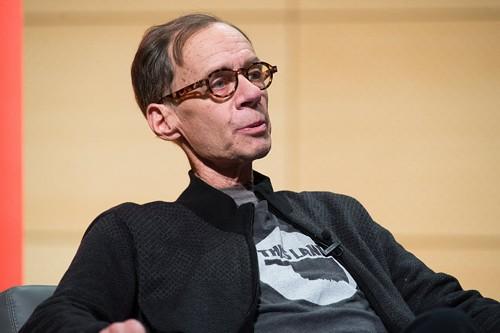Most of us who practice – or practiced – what remains of the still enduring, alluring profession of journalism deal in stories and reports and tales.
At whatever level we work – magazine, big city newspaper, blog, television, small-town paper – we come to the job armed with training, experience, curiosity, compassion and empathy, as well as acquired expertise. The things, people, places and events we write about on a daily basis are part of our life. But they do not occupy the same space held by people we love, parents, wives, husbands, friends, children, pets and other passionate regularities. In short, we don’t bring our personal lives and history to the profession.
We can write about politicians, but, other than voting, we are not in the political stream. We write about criminal acts, but, as a rule, are not criminals. We walk with soldiers at times, even in a war zone, but are not soldiers. We opine about theater, but are not actors. We write about drugs and addiction, but are not drug addicts ourselves.
Except of course, when we are, for whatever reasons.
David Carr, the highly respected New York Time media columnist, former Washington City Paper editor and red-carpet commentator, died Feb. 12 after collapsing in his office at the Times. He was only 58, thin, with a raspy voice and totally in love with the job. The causes included lung cancer, which spoke to a worn-out immune system.
Carr had all of the aforementioned professional requirements for a journalist in spades, especially when it came to a stylish, tough, layered, intelligent and often moving – as well as funny – writing style. He had a boundless curiosity and strongly held views. He also (and it’s easy to assume that it informed his writing) had a nightmarish fall to the bottom of life’s pit, that time when you fall into the cold basement only to discover that there is a door in the room to a deeper cellar.
He was raised in Minnesota, worked at an alt paper in the Twin Cities and along the way became addicted to, among other things, crack cocaine. He fathered two children by a girlfriend who was also his dealer. He apparently came close to dying. But, instead, he went into rehab and was successful, married, had other children.
And he wrote a memoir in 2008 about his addiction called “The Night of the Gun,” approaching the job like an investigative reporter in his own life, questioning everything in search of his own true story. That might have been harder than going cold turkey.
He brought his gifts to the job, both the necessary tools and a champion way with words. He worked at the City Paper in the 1990s, encouraging and nurturing a talented group of writers: Amanda Ripley, Michael Schaffer, Jake Tapper, Eddie Dean and Eric Wemple. Google will take you to Wemple’s enthralling and affectionate tribute.
In 2002, Carr joined the New York Times, at first reporting on entertainment celebrities, which included several gigs on the edge of Oscar’s red carpet. But he gained stature, fame and respect when he took on the Media Equation column for the Times, and in many ways – speaking to groups, teaching classes, going on television and hosting panel discussions – became the face of the most honored newspaper in the land. He played a memorable role as himself in the 2011 documentary “Page One: Inside the New York Times.”
Recently, in all of the journalese that came out of the s—storm over Brian Williams, it was Cole who nailed it, smartly, kindly, without malice, in a summary that managed to say everything that needed to be said about Williams and anchors in general: “We want our anchors to be both good at reading the news and also pretending to be in the middle of it. . . . We want our anchors to be everywhere, to be impossibly famous, globe trotting, hilarious, down-to-earth and, above all, trustworthy. It’s a job description that no one can match.”
He also wrote a thoughtful, spot-on, serious essay on the reasons why “Selma” seemed to be lacking in support come Oscar-time, a piece that made me want to disown every silly word I wrote about the aftermath of Oscar.
It could not have been fun to be his friend or loved one during his trial by fire, but you can also more than admire the life he led after his recovery – all of it, in fact – and think that it would have been the highest sort of fun to work with him.
He had the grace of understanding his own life. To quote from the conclusion of his book, as did his last employer, the New York Times: “I now inhabit a life I don’t deserve, but we all walk this earth feeling we are frauds. The trick is to be grateful and hope the caper doesn’t end any time soon.”
It ended way too soon for Carr.


